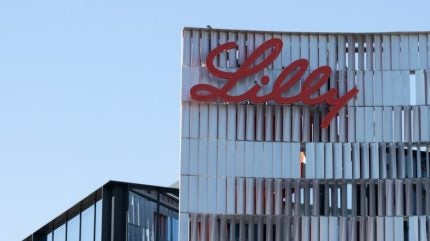
Eli Lilly has released detailed results from the Phase III QWINT-2 and QWINT-5 trial showing that its once weekly insulin efsitora (efsitora alfa) demonstrated a similar reduction in HbA1C levels compared to daily insulin injections in adults with type 2 and type 1 diabetes, respectively.
The company is conducting five registrational QWINT studies to establish that once-weekly efsitora is not inferior to daily insulin injection in managing type 1 and 2 diabetes. The results from the two QWINT studies were presented at the European Association for the Study of Diabetes (EASD) 2024 meeting taking place from 9-13 September in Spain.

Discover B2B Marketing That Performs
Combine business intelligence and editorial excellence to reach engaged professionals across 36 leading media platforms.
The QWINT-2 and QWINT-5 data were also concurrently published in the New England Journal of Medicine and the Lancet. The data presentation comes on the heels of the positive topline data from the QWINT-1 and QWINT-3 trials. Both studies met their primary endpoint by demonstrating that efsitora’s HbA1C reduction was non-inferior to that of insulin glargine and insulin degludec, respectively.
Diabetes is a high-grossing indication for Lilly. Apart from the GLP-1 receptor agonists, which have generated billions for Lilly in both diabetes and obesity indications, the company’s insulin products have been extremely successful too. Humalog (insulin lispro), a fast-acting insulin, raked in $1.67bn in sales last year, as per the company’s financials.
The randomised open label QWINT-2 trial (NCT05362058) enrolled 928 participants with type 2 diabetes. The study compared insulin efsitora to insulin degludec. At 52 weeks, participants on efsitora reduced their mean HbA1C levels by −1.26 percentage points comparable to the −1.17 percentage point reduction seen in the insulin degludec group. The non-inferiority in Hb1C reduction was maintained whether the participants used GLP-1 receptor agonists or not.
No episodes of severe hypoglycaemia were observed in the efsitora group, whilst six participants in the degludec group suffered from severe hypoglycaemic episodes. The number of nocturnal hypoglycaemic episodes was similar for both groups, 32 in the efsitora group and 35 in degludec group.

US Tariffs are shifting - will you react or anticipate?
Don’t let policy changes catch you off guard. Stay proactive with real-time data and expert analysis.
By GlobalDataThe randomised open-label QWINT-5 trial (NCT05463744) enrolled 893 participants with type 1 diabetes. The participants received either insulin efsitora to insulin degludec in combination with insulin lispro. At 26 weeks, participants on efsitora reduced their mean HbA1C levels by -0.51%, comparable to the -0.56% reduction seen in the insulin degludec group.
Rates of hypoglycaemia were higher with efsitora compared with degludec, with 10% of patients in efsitora group observing severe hypoglycaemia compared to 3% in the degludec group.




